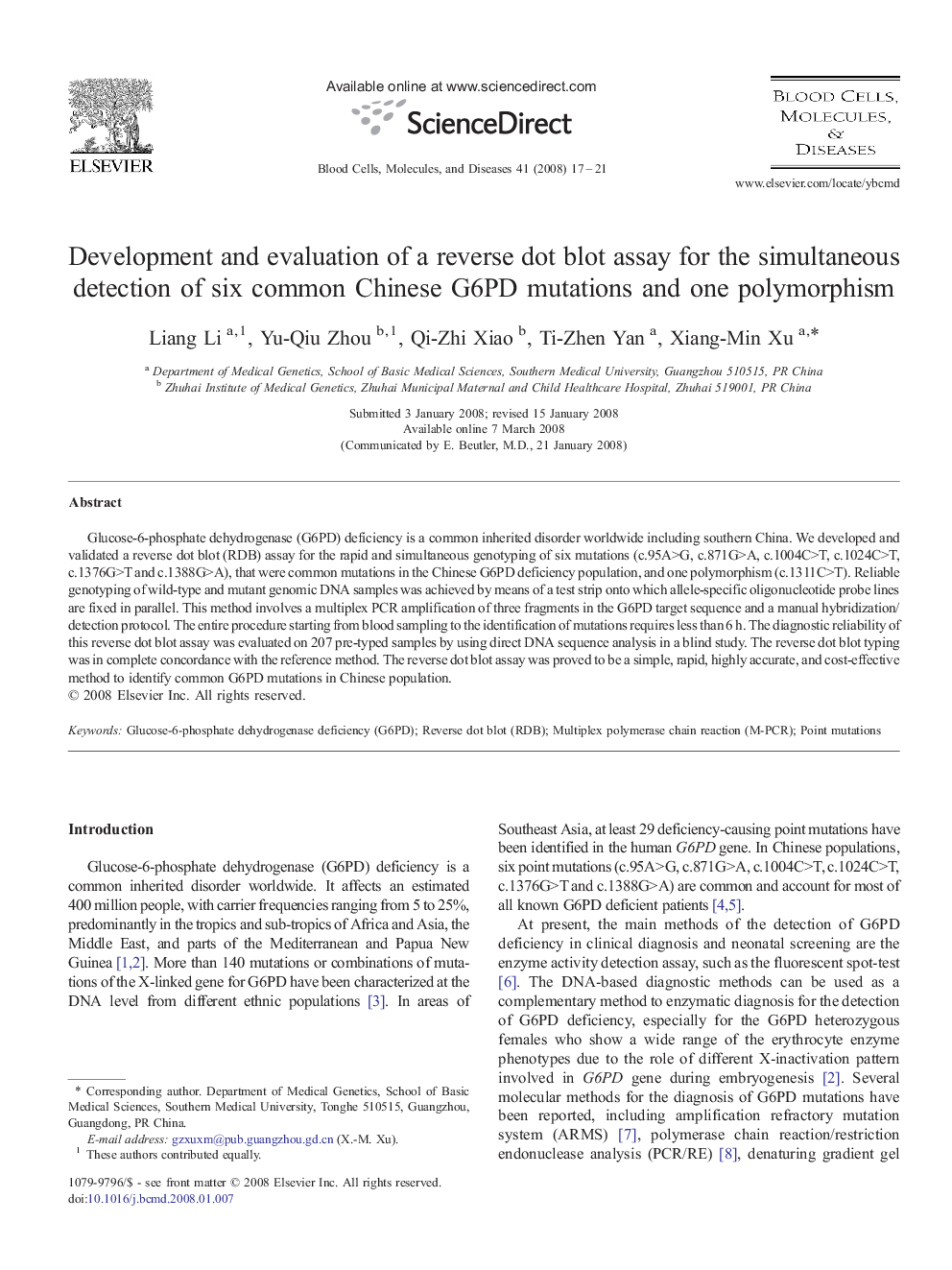| Article ID | Journal | Published Year | Pages | File Type |
|---|---|---|---|---|
| 2827794 | Blood Cells, Molecules, and Diseases | 2008 | 5 Pages |
Glucose-6-phosphate dehydrogenase (G6PD) deficiency is a common inherited disorder worldwide including southern China. We developed and validated a reverse dot blot (RDB) assay for the rapid and simultaneous genotyping of six mutations (c.95A>G, c.871G>A, c.1004C>T, c.1024C>T, c.1376G>T and c.1388G>A), that were common mutations in the Chinese G6PD deficiency population, and one polymorphism (c.1311C>T). Reliable genotyping of wild-type and mutant genomic DNA samples was achieved by means of a test strip onto which allele-specific oligonucleotide probe lines are fixed in parallel. This method involves a multiplex PCR amplification of three fragments in the G6PD target sequence and a manual hybridization/detection protocol. The entire procedure starting from blood sampling to the identification of mutations requires less than 6 h. The diagnostic reliability of this reverse dot blot assay was evaluated on 207 pre-typed samples by using direct DNA sequence analysis in a blind study. The reverse dot blot typing was in complete concordance with the reference method. The reverse dot blot assay was proved to be a simple, rapid, highly accurate, and cost-effective method to identify common G6PD mutations in Chinese population.
